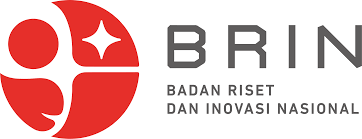Considering Kyai's Transformational Leadership Style for Employee Engagement of Islamic Boarding School Administrators, mediated by Self-Efficacy
DOI:
https://doi.org/10.58355/organize.v2i3.57Keywords:
Transformational Leadership Style, Employee Engagement, Self Efficacy, Islamic Boarding SchoolAbstract
Islamic boarding school administrators are the determinants of the running of activities at the Islamic boarding school. The service carried out by administrators is generally without material rewards so that their attachment to the management organization is largely determined by the caregivers as the center of Islamic boarding school leadership. Confidence in the management's own abilities is also a supporting factor in carrying out service duties. The method used in this research is a quantitative method, using a transformational leadership style scale, employee engagement scale and self-efficacy scale. The aim of this research is to prove the influence of the transformational leadership style of caregivers as the main leaders on employee engagement of Islamic boarding school administrators, as well as support from the self-efficacy of administrators as a form of readiness in carrying out service duties. The results of this research show that the transformational leadership style significantly influences the employee engagement of Islamic boarding school administrators, F(1,39) = 58.243, P < 0.01 with R2 = 0.599, and this result is stronger when mediated by their self-efficacy. administrator with results F(2,38) = 40.268, P < 0.01 with R2 = 0.679. This means that the transformational leadership style possessed by kyai influences the engagement of Islamic boarding school administrators, this is also supported by the existence of self-efficacy as the administrator's belief in their own ability to carry out their service duties.
Downloads
References
Ahda, H. M., & Hidayah, N. (2021). Gaya Kepemimpinan Dalam Meningkatkan Keterikatan dan Kinerja Perawat. Jurnal Kepemimpinan Dan Manajemen Keperawatan, 4(2), 183–198. https://doi.org/10.32584/jkmk.v4i2.1221
Allameh, S. M., Shahriari, M., & Mansoori, H. (2012). Investigating employee’s attitude toward organization, organizational climate and employee’s engagement as antecedents of organizational citizenship behavior. Australian Journal of Basic and Applied Sciences, 6(8).
Ardi, V. T. P., Astuti, E. S., & Sulistyo, M. C. W. (2017). PENGARUH SELF EFFICACY TERHADAP EMPLOYEE ENGAGEMENT DAN KINERJA KARYAWAN (Studi pada Karyawan PT Telekomunikasi Indonesia Regional V Surabaya). In Jurnal Administrasi Bisnis (JAB)|Vol (Vol. 52, Issue 1).
Arifin, Z. (2018). Manajemen Konflik Pada Kepemimpinan Kolektif BPK-P2L Pondok Pesantren Lirboyo Kediri. Jurnal Pemikiran Keislaman, 29(1). https://doi.org/10.33367/tribakti.v29i1.616
Fadhilah, A. (2011). STRUKTUR DAN POLA KEPEMIMPINAN KYAI DALAM PESANTREN DI JAWA. HUNAFA: Jurnal Studia Islamika, 8(1). https://doi.org/10.24239/jsi.v8i1.89.101-120
Febriansyah, H., & Ginting, H. (2020). Tujuh Dimensi Employee Engagement. In Google Books-Tujuh Dimensi Employee Engagement.
Inka Dinda Thiara Qurrotunnisa, & Didik Himmawan. (2023). Community Service Through the Implementation of Islamic Education in Arahan Kidul Village. Community: Jurnal Hasil Penelitian Dan Pengabdian Masyarakat, 2(2), 99–114. https://doi.org/10.61166/community.v2i2.21
Margaretha, I., & Kartika, D. (2018). Analisa Pengaruh Komunikasi Internal, Intrinsic Rewards Dan Recognition Terhadap Employee Engagement Di Surabaya Suite Hotel. Journal of Chemical Information and Modeling.
Nengsih, S., Gusfira, R., & Pratama, R. (2020). KEPEMIMPINAN TRANSFORMATIF DI LEMBAGA PENDIDIKAN ISLAM. 2, 38–54.
Nienaber, H., & Martins, N. (2020). Exploratory study organisational effectiveness. 32(3), 475–495. https://doi.org/10.1108/TQM-05-2019-0151
Ramadhan, N., Sembiring, J., & Karyawan, K. (2014). PENGARUH EMPLOYEE ENGAGEMENT DI HUMAN CAPITAL CENTER. 47–58.
Siahaan, J. R., Rianti, I., & Putri Pratiwi, R. (2021). Peran Kepemimpinan Transformasional terhadap Keterikatan Kerja dengan Kepuasan Kerja dan Motivasi sebagai Mediasi. MASTER: Jurnal Manajemen Strategik Kewirausahaan, 1(2), 137–150. https://doi.org/10.37366/master.v1i2.195
Sofiah Sinaga, N., Aprilinda, D., & Putra Budiman, A. (2021). Konsep Kepemimpinan Transformasional. Cerdika: Jurnal Ilmiah Indonesia, 1(7), 840–846. https://doi.org/10.36418/cerdika.v1i7.123
Studi, P., Fakultas, P., & Universitas, K. (2016). Efikasi Diri: Tinjauan Teori Albert Bandura. Buletin Psikologi, 20(1–2). https://doi.org/10.22146/bpsi.11945
Sumrahadi, S., Azis, E., Respati, N. P., Kania, I., & Rahmadhanty, A. (2019). Gaya Kepemimpinan Transformasional, Stres Kerja, Kepuasan Kerja, dan Turnover Intention pada Karyawan Perusahaan Penyedia Jasa Konsultasi Pengembangan Sumberdaya Manusia. Jurnal Ilmu Sosial Politik Dan Humaniora, 2(1). https://doi.org/10.36624/jisora.v2i1.23
Wahyu Nurhayati, D. A., & Oktavia, N. T. (2023). Sejarah Perjuangan Gus Miek dalam Menggagas Dzikrul Ghofilin. HISTORICAL: Journal of History and Social Sciences, 2(2), 58–63. https://doi.org/10.58355/historical.v2i2.45
Wiranti, R., Wulandari, A., Sadat, F., Fauzan, A., & Gunawan, A. W. (2021). Pengaruh Employee Engagement Terhadap Employee Performance Dan Turnover Intention Melalui Organizational Commitment Sebagai Variabel Interveningnya Pada Karyawan Bank Swasta. Jurnal Ekonomi : Journal of Economic, 12(01), 29–38. https://doi.org/10.47007/jeko.v12i01.3932
Downloads
Published
How to Cite
Issue
Section
License
Copyright (c) 2023 Karimah Darojat, Heri Purwanto

This work is licensed under a Creative Commons Attribution 4.0 International License.

















